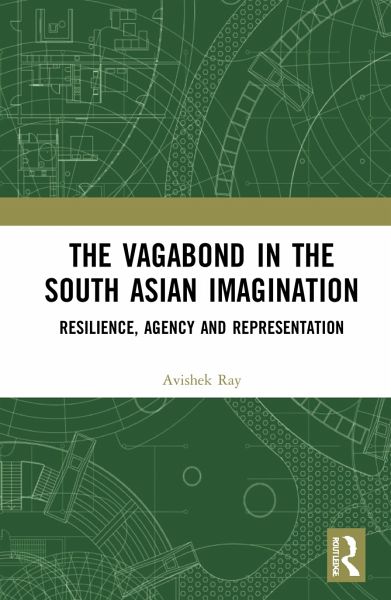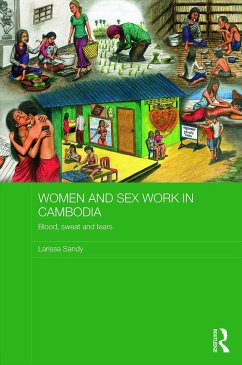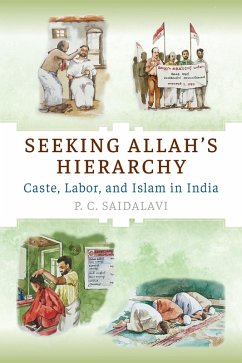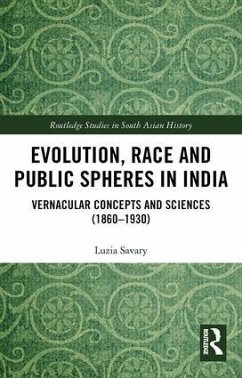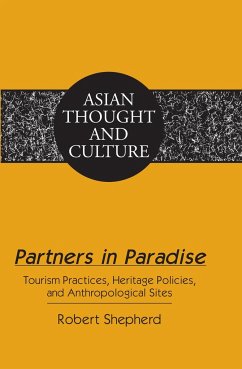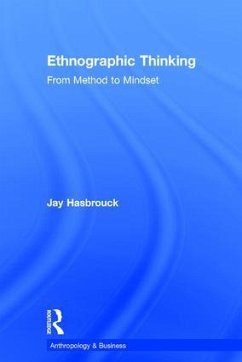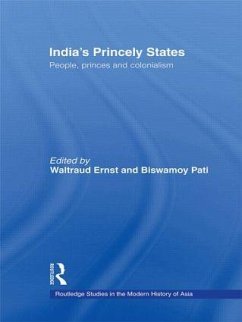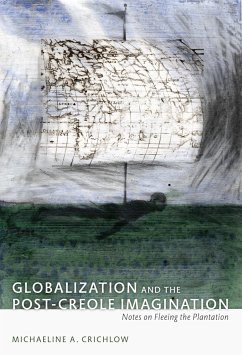Avishek Ray
Gebundenes Buch
The Vagabond in the South Asian Imagination
Resilience, Agency and Representation
Versandkostenfrei!
Versandfertig in über 4 Wochen
Weitere Ausgaben:

PAYBACK Punkte
89 °P sammeln!





This book discusses the epistemic foundation of the heuristic construct 'vagabond' and the convergence between the politics of itinerancy and that of dissent in the context of South Asia.
Avishek Ray teaches at the National Institute of Technology, Silchar. His research pivots around, broadly speaking, travel and mobility. He is the co-editor of Nation, Nationalism and the Public Sphere: Religious Politics in India (2020). His research appears in South Asia: Journal of South Asian Studies, Tourism Culture & Communication, the Journal of Literary Studies, Inter-Asia Cultural Studies, the Multicultural Education Review, the Journal of Human Values, among others. He has held research fellowships at the University of Edinburgh, Purdue University Library, the Centre for Advanced Study, Sofia, Mahidol University, and Pavia University.
Produktdetails
- Verlag: Taylor & Francis
- Seitenzahl: 160
- Erscheinungstermin: 23. Juli 2021
- Englisch
- Abmessung: 234mm x 156mm x 11mm
- Gewicht: 422g
- ISBN-13: 9780367407575
- ISBN-10: 0367407574
- Artikelnr.: 62230887
Herstellerkennzeichnung
Libri GmbH
Europaallee 1
36244 Bad Hersfeld
gpsr@libri.de
'Questioning the commonsensical opposition of vagabond to tourist, this wide-ranging and ambitious book resists easy typologies of vagabondage. Instead, it explores the genealogies of the concepts and classifications of vagabondage. It insightfully brings out the ambiguities of the discourse of vagabondage--the often criminalized vagabondage involuntarily adopted by and imposed on the powerless on the one side, and the dissentient vagabondage of insurgents, religious itinerants and restless critics of "society as it is."'-Ajay Skaria, Professor of History, University of Minnesota
'This agile and dynamic book charts new ways of understanding colonial knowledge formations, through a conceptual mapping of the vagabond as a
'This agile and dynamic book charts new ways of understanding colonial knowledge formations, through a conceptual mapping of the vagabond as a
Mehr anzeigen
figure of the imagination, a discourse, and a product of colonial governance. It represents a work of significance to any scholar or student working on the modern and colonial periods in South Asia.'-Anne Murphy, Associate Professor, Asian Studies & Lead, Interdisciplinary Histories Research Cluster, University of British Columbia
'Vagabonds, gypsies, tramps, and other nomadic figures who refuse to succumb to domesticity have long been feared, despised, and surveilled by the state. Avishek Ray offers an erudite, sophisticated, and politically aware account of the vagabond's itinerary through South Asia from the pre-colonial period to the present. His book incisively points to the ethical possibilities that inhere in the figure of the vagabond as a source of resistance to state authoritarianism and the seductions of capitalism.'-Vinay Lal, Professor of History at the University of California, Los Angeles (UCLA)
'Vagabonds, gypsies, tramps, and other nomadic figures who refuse to succumb to domesticity have long been feared, despised, and surveilled by the state. Avishek Ray offers an erudite, sophisticated, and politically aware account of the vagabond's itinerary through South Asia from the pre-colonial period to the present. His book incisively points to the ethical possibilities that inhere in the figure of the vagabond as a source of resistance to state authoritarianism and the seductions of capitalism.'-Vinay Lal, Professor of History at the University of California, Los Angeles (UCLA)
Schließen
Für dieses Produkt wurde noch keine Bewertung abgegeben. Wir würden uns sehr freuen, wenn du die erste Bewertung schreibst!
Eine Bewertung schreiben
Eine Bewertung schreiben
Andere Kunden interessierten sich für



